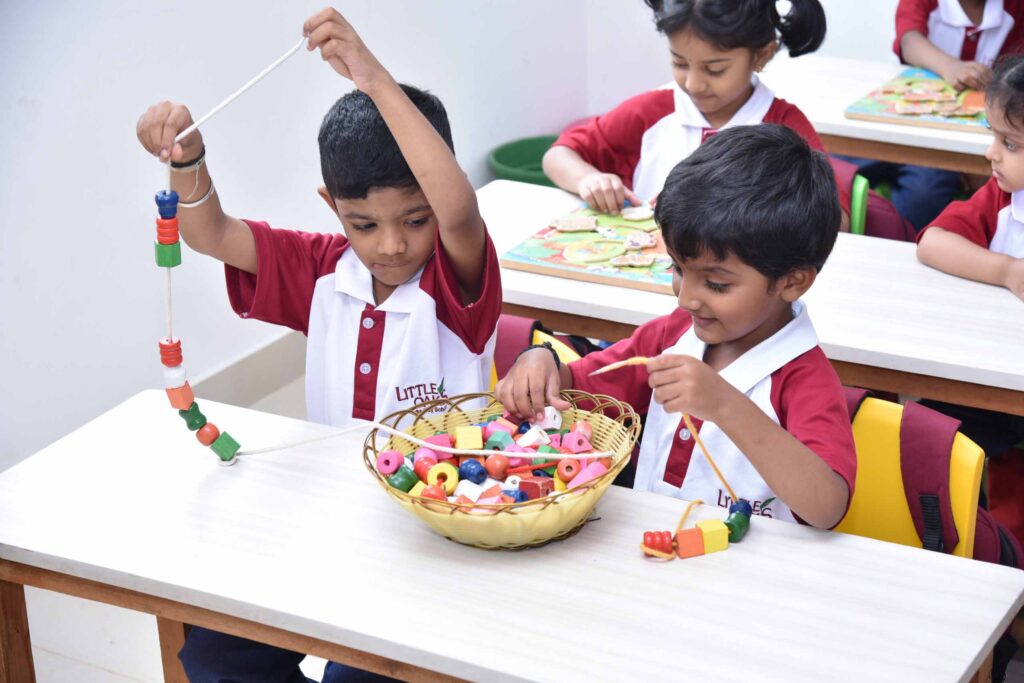
Play schools play a significant role in laying the foundation for a child’s future education. They serve as stepping stones that prepare children for the structured learning environment they will encounter in formal education settings. Here’s how play schools impact future education:
Socialization Skills: Play schools provide children with their first exposure to a social environment outside their immediate family. Interacting with peers helps children develop crucial social skills such as sharing, taking turns, and cooperating. These skills are essential for success in future educational settings where collaboration and teamwork are often required.
Emotional Development: Play schools offer a supportive and nurturing environment where children learn to manage their emotions and develop self-regulation skills. Building a strong emotional foundation at an early age equips children with the resilience and confidence needed to navigate the challenges they may encounter in later stages of their education.
Cognitive Development: Through play-based activities, children in play schools engage in hands-on learning experiences that stimulate their cognitive development. Activities such as puzzles, storytelling, and creative arts enhance problem-solving skills, critical thinking, and imagination, which are fundamental for academic success.
Language and Communication: Play schools provide opportunities for language development through conversations, storytelling, and song. Exposure to a rich language environment at an early age lays the groundwork for strong literacy skills in the future. Effective communication skills acquired in play schools are crucial for expressing thoughts, asking questions, and participating in classroom discussions later on.
Pre-Academic Skills: Play schools introduce children to basic academic concepts such as numbers, letters, colors, and shapes in a fun and engaging manner. These early experiences build a solid foundation for future academic learning and prevent any potential gaps in knowledge when children transition to formal schooling.
Independence and Self-Confidence: Play schools foster independence by encouraging children to explore their interests and make choices within a safe and supportive environment. As children gain confidence in their abilities and develop a sense of autonomy, they become better equipped to handle the challenges of formal education with resilience and perseverance.
Parental Involvement: Play schools often involve parents in their child’s learning journey through regular communication, parent-teacher meetings, and family events. This collaboration between parents and educators creates a supportive network that reinforces learning both at school and at home, setting the stage for continued parental involvement in their child’s education as they progress through school.
In summary, play schools play a vital role in preparing children for future academic success by fostering social, emotional, cognitive, and academic development in a supportive and stimulating environment. The skills and experiences gained in play schools serve as the building blocks for lifelong learning and achievement.